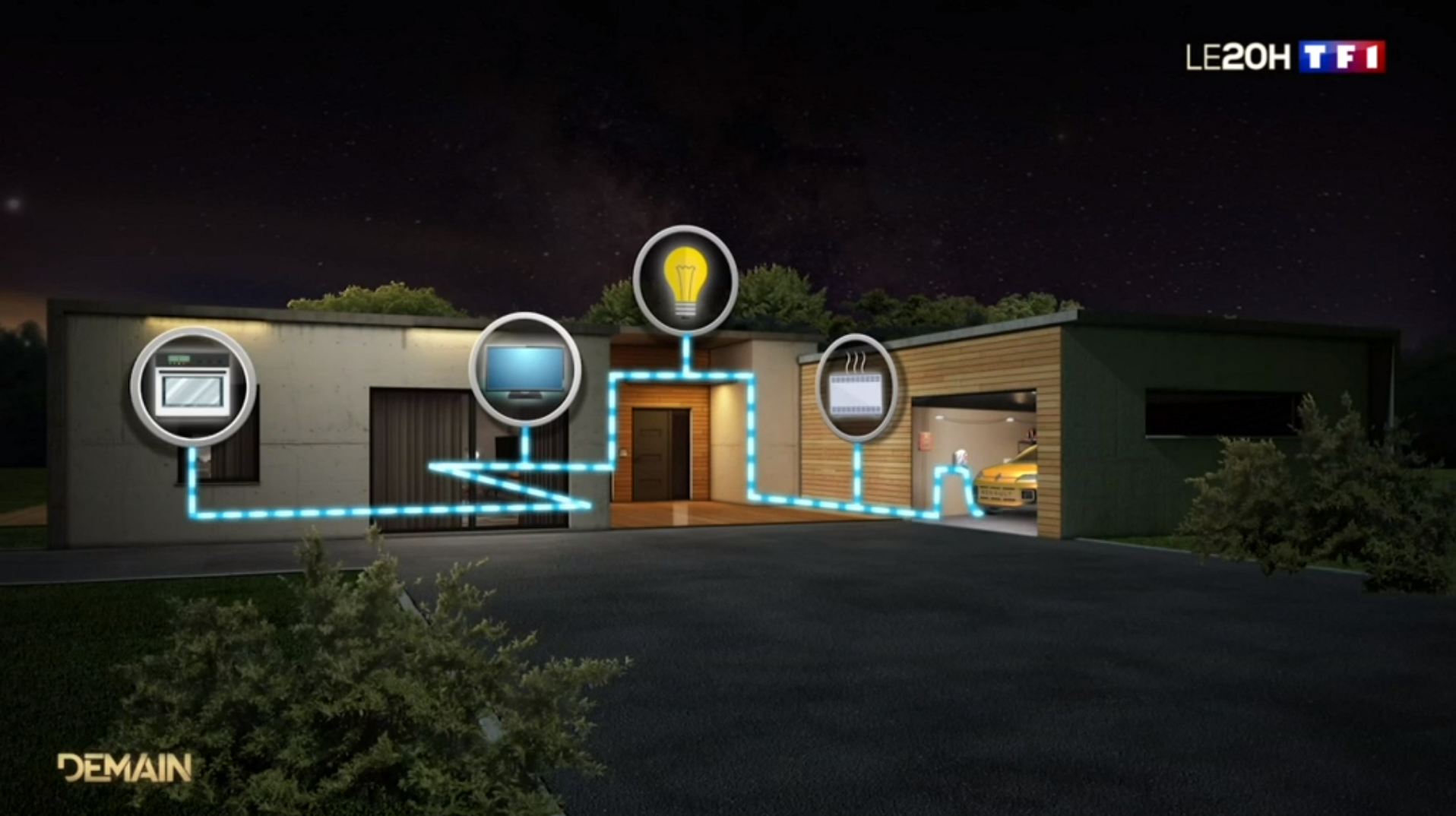02 February 2024
LACROIX
Electric Vehicle Charging is the provision of electricity to recharge the batteries of hybrid or electric vehicles.
Forecasts for 2030 estimate that there will be more than 145 million electric vehicles worldwide. This trend is reinforced by the decision of the European Union to put an end to the sales of new thermal cars from 2035.
The democratization of electric mobility raises new challenges in terms of the deployment of recharging infrastructures and the optimization of recharging processes.
After unidirectional charging (V1G), one of the main lines of development is now focused on “Vehicle-to-Grid” (V2G) technology. This new bi-directional charge system redistributes the energy stored in the electric vehicle battery to the grid.
What is the status of charging infrastructure for electric vehicles in France?
France has more than 1.5 million electric and plug-in hybrid vehicles by the end of 2023, according to AVERE. Electric car sales have increased 47% over 2022 (source: PFA), demonstrating commitments to electric mobility and energy transition.
To reach the challenges of charging electric vehicles, the country had 118,009 public electric charging stations as of December 31, 2023 (source: AVERE).
The government supports the deployment of electric mobility through multiple purchasing aids (electrical bonuses, conversion bonuses, social leasing, charging station subsidies, etc.) A total of €1.5 billion to reach the 100% electric car target by 2035.
What are the current challenges in recharging electric vehicles?
The challenge is to continue deploying public charging station networks in both urban and rural areas. Particular attention needs to be paid to high-power charging on expressways, as well as to the equipment of collective residential buildings.
Charging stations will also be increasingly faster, to optimize and reduce charging times for electric and hybrid vehicles.
Interoperability between different types of recharging stations and electric vehicles will help ensure that drivers can easily use different recharging infrastructures, whatever their vehicle model.
What are the innovations related to EV Charging?

Some CES 2024 exhibitors have revealed some projects and ongoing research such as wireless charging through a smart robot, or charging vehicles by induction. The power and speed of recharging are also a subject under development, with the aim of reducing the recharging time. There are also workstreams to develop very high-power recharging to enable trucks to access electric mobility. “
Another focus of innovation is to develop Vehicle-To-Grid, a technology that enables electric vehicles to supply electricity to the grid. Using bi-directional charging and discharging systems, Vehicles can inject electricity stored in their batteries into the grid during periods of high demand or when electricity is more expensive.
The V2G offers the possibility to optimize the use of energy resources, strengthen the stability of the grid, contribute to the use of decarbonized electricity and reduce Co2 emissions.
How is LACROIX involved in the development of electric vehicle charging?
Software République, in partnership with IoTecha Corp, has launched Mobilize Powerbox®: the beginning of the realization of V2G technology in France.

Source: TF1 Info – Yani Khezzar
LACROIX manufactures this bidirectional charging station in the French Symbiose electronic assembly plant.
The Mobilize Powerbox® communicates with the car and the “cloud” to recharge the battery or send electricity back to the grid based on the need to recharge the battery, domestic needs and incentives from the energy market and the public grid. In short, it calculates the right time to recharge the car’s battery when the energy market prices are at their lowest. The rest of the time, the vehicle’s battery is used to power the energy consumed by the home.

LACROIX provides its manufacturing know-how to help players produce these charging stations in France. A number of charging stations, the most modern of which will be manufactured in our factories. We work on electric charging stations, but we also have equivalent activities on other forms of low-carbon mobility. “
Plus d'articles

Explained
How to effectively deploy Smart Grids in Spain?

Explained
Computer Vision: turning images into information

Great Place to Work® certified

Change of generation: series5X

10,900 sleepers on 35 km of track and over 50 SAE telecontrol devices

Mobile telecontrol case: identify hotspots in the local network

The energy transition needs sustainable infrastructures and people to build them

Explained
Mobilize PowerBox: the french revolution for the energy transition

Expert's take
What is EV Charging?

Explained
Electric mobility and green hydrogen for a sustainable future

Explained
Digital technology to power the energy revolution

Expert's take
Securing the Supply Chain: The Ideal Way to Make Your Products Last the Distance

Explained
Let's take up the new challenges of miniaturization together!

Explained
Welcome to an in-depth look at our rapid prototyping unit, a dedicated department that has a successful track record with our industrial customers

Explained
Power electronics: SiC and GaN, the new components challenging electronic subcontractors

Explained
Lean management : an essential and transversal approach in our factories

Explained

